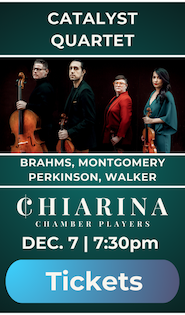Derek Jacobi and Folger Consort team up for evening of Shakespeare and Purcell

Derek Jacobi performed excerpts from “Measure for Measure” Saturday night at the Kennedy Center.
The Folger Consort’s annual mixed evening of music and theater, starring celebrated actor Derek Jacobi and directed by his partner, Richard Clifford, are often the highlight of its season. In the last ten years, they have spotlighted Shakespeare’s The Merchant of Venice, A Midsummer Night’s Dream, and The Tempest.
This year, it was Measure for Measure—one of Shakespeare’s “problem plays,” so called because they sit uncomfortably between tragedy and comedy or because the crisis facing the protagonist is morally ambiguous. Later productions of this play sometimes attempted to fix the problem. The opening performance of the Folger Consort’s new season examined one such adaptation, by English Restoration playwright Charles Gildon, heard at the Kennedy Center’s Eisenhower Theater on Saturday evening.
Gildon subtitled his version Beauty, the Best Advocate when it was premiered at Lincoln’s Inn Fields in 1699 or 1700. As was the case in many plays during the Restoration period, Gildon inserted a masque between the acts. Such episodic musical dramas constitute the earliest examples of what we might call English opera.
Gildon chose not to commission a new masque but to include a complete performance of the short opera Dido and Aeneas by Henry Purcell, who had died only five years earlier. The only verifiable earlier performance of the opera was in 1689, at Josias Priest’s school for girls. Gildon’s production, therefore, was the London audience’s first chance to hear this now-classic work.
Webb Wiggins led this performance from the harpsichord, with the opera’s three acts broken up among scenes excerpted from Gildon’s text. String players performed the score’s four parts, with two or three musicians to a part, plus theorbo and harpsichord to realize the continuo harmony. Without a double-bass, the bass line was underpowered, but it was hard to tell since the sound of the instruments was amplified, not pleasantly, through the theater’s sound system. Electronic assistance does not suit these historical instruments, which are less reliable by nature, but the vast space apparently made it necessary.
As Dido, soprano Molly Quinn was timorous in tone, with a nervous flutter in the vibrato and not much substance below her mid-range, where a good part of the role lies, and is usually taken by mezzos. One wished for a larger sound in the opera’s most famous number, “When I am laid in earth.” Quinn had her best moments in “Hark! how all things,” the first song from Purcell’s The Fairy Queen, used here as a rousing conclusion to the evening.
Soprano Emily Noël brought her light soprano to the more delicate role of Belinda, again excelling more in “Hark! the echoing air” from The Fairy Queen. Baritone John Taylor Ward has a pleasant timbre, somewhat unvarnished at the top, where more gravitas was needed. Peter Becker’s bass-voiced Sorceress was delightful, although a fright wig would have completed the picture nicely. Members of the chorus joined in for the cackling laugh-numbers, which provide some of the opera’s more memorable moments.
The best singing overall came from the chorus, formed by members of the ensemble Cathedra, directed by Michael McCarthy. The chorus of mourning at Dido’s suicide, “With drooping wings,” was the evening’s high point, rendered more poignant by being unaccompanied for most of its length. When the strings came back in toward the end, the singers had remained perfectly in the key.
At 77, Derek Jacobi has lost none of the nuance and power of his voice and stage presence. He brought out the humor and villainy of the hypocritical Angelo, who condemns sexual appetite in everyone but himself.
The other actors could only do their best to keep up with him. Owiso Odera was at the top, taking scenes as Claudio and Escalus, with Clifford’s Duke, also disguised as Balthazar, close behind him. Shirine Babb was an elegant presence as the high-minded Isabella, but too many of her lines came off in unvaried fashion.
In Gildon’s conceit, Angelo calls for the performance of the opera and is gradually convinced to see his own maltreatment of his betrothed, Mariana, in the poor behavior of Aeneas. The performers missed a good laugh, however, by not including the epilogue of Gildon’s play, which is spoken by the ghost of Shakespeare, risen from the dead to complain about all these botched adaptations of his plays. It includes the line, “My plays, by Scribblers, Mangl’d I have seen.”
The next performance at the Folger Shakespeare Library will feature the vocal ensemble Roomful of Teeth 7 p.m. November 20. The program will include the premiere of a new work by composer Caroline Shaw, inspired by Shakespeare’s The Tempest. http://www.folger.edu/events/roomful-of-teeth



